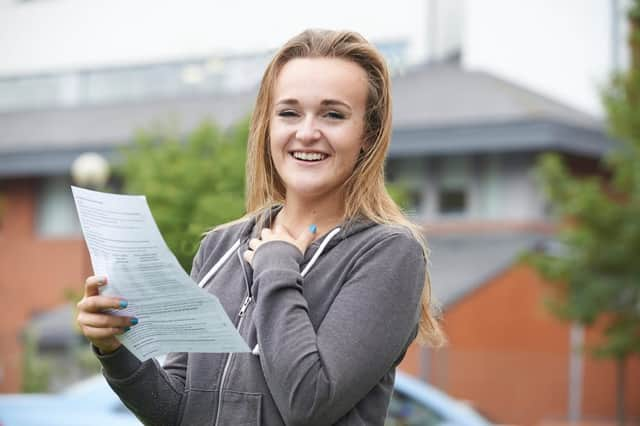Advice, guidance and support for parents on A level results day


A levels results day is more than a little different to usual this year, as no exams were allowed to take place, due to the coronavirus pandemic.
Students may be elated with their grades or have been left disappointed. If you’re trying to aid your child in their next steps, these are some tips, advice and guidance for parents.
Advertisement
Hide AdAdvertisement
Hide AdMake it known you are proud of them
This may seem like common sense, but your child may not have received the results that they expected or wanted, so letting them know that you’re still proud of them, even if they didn’t get the expected result, will help to boost their confidence.
If your child doesn’t get the grades they need, a university may still accept them onto their desired course, but this isn’t a guarantee. Alternatively, the university might offer them a place on another course instead, or a different year of entry.
Your child could also go through the Clearing process, or may decide to reconsider their options. Being there to help and support them, and offer advice, will be beneficial.
Ask for permission
Sharing A level grades with family and friends is a common occurrence on results day, but your child may not want everyone to know, especially if they’re unhappy with their results.
Advertisement
Hide AdAdvertisement
Hide AdAlthough you might be proud as punch and want people to know about your child’s achievements, it’s worth asking if they mind you telling extended members of the family, friends, or sharing it on social media.
Adjustment places
If your child’s results are better than expected, then they might “meet and exceed the conditions of their firm choice.” This means they may want to look at Adjustment, which allows them to find an alternative course.
Helping your child with this, if they’re unsure of what decision to make, what the best options are, or how to go about it, can be really useful.
Adjustment is available from 13 to 31 August, but applicants only have five days to use it from the moment that their firm choice confirms their place, or from 13 August, whichever is later.
Advertisement
Hide AdAdvertisement
Hide AdVisit the Adjustment information page for more information.
Clearing
If students don’t get onto their desired course after they receive their grades, Clearing is a chance for them to still look for a university place. This is also the final chance for universities to fill any places they may still have available.
In order to support and advise your child, it’s worth knowing that to look for a Clearing place, your child must be eligible.
UCAS explains that this means that either:
- They have no offers
- Their firm and insurance choices have made them unsuccessful
- They applied after 30 June 2020
If your child only applied for one choice, then they will need to pay an additional £5 to apply for a course in Clearing.
Advertisement
Hide AdAdvertisement
Hide AdBills and budgeting
If your child is heading to university, then it’s worth sitting down and looking at the next steps with them before they go.
Check that their place is confirmed, accommodation, grants and student finance are all in place.
Planning for the future
Whatever grades your child receives, whether they are planning on heading off to university, resitting exams, taking up an apprenticeship or going straight into a job, they may need support with their next steps.
For more guidance and advice, check the UCAS website.